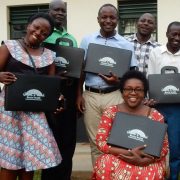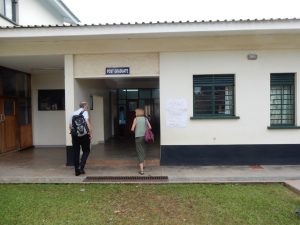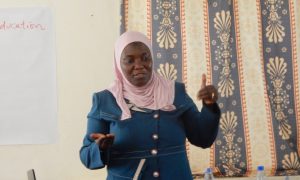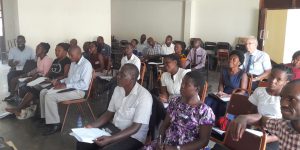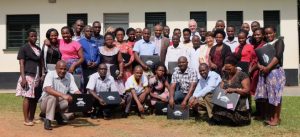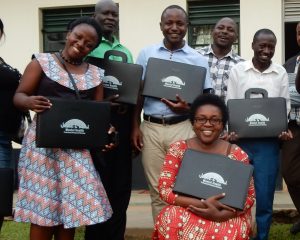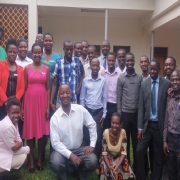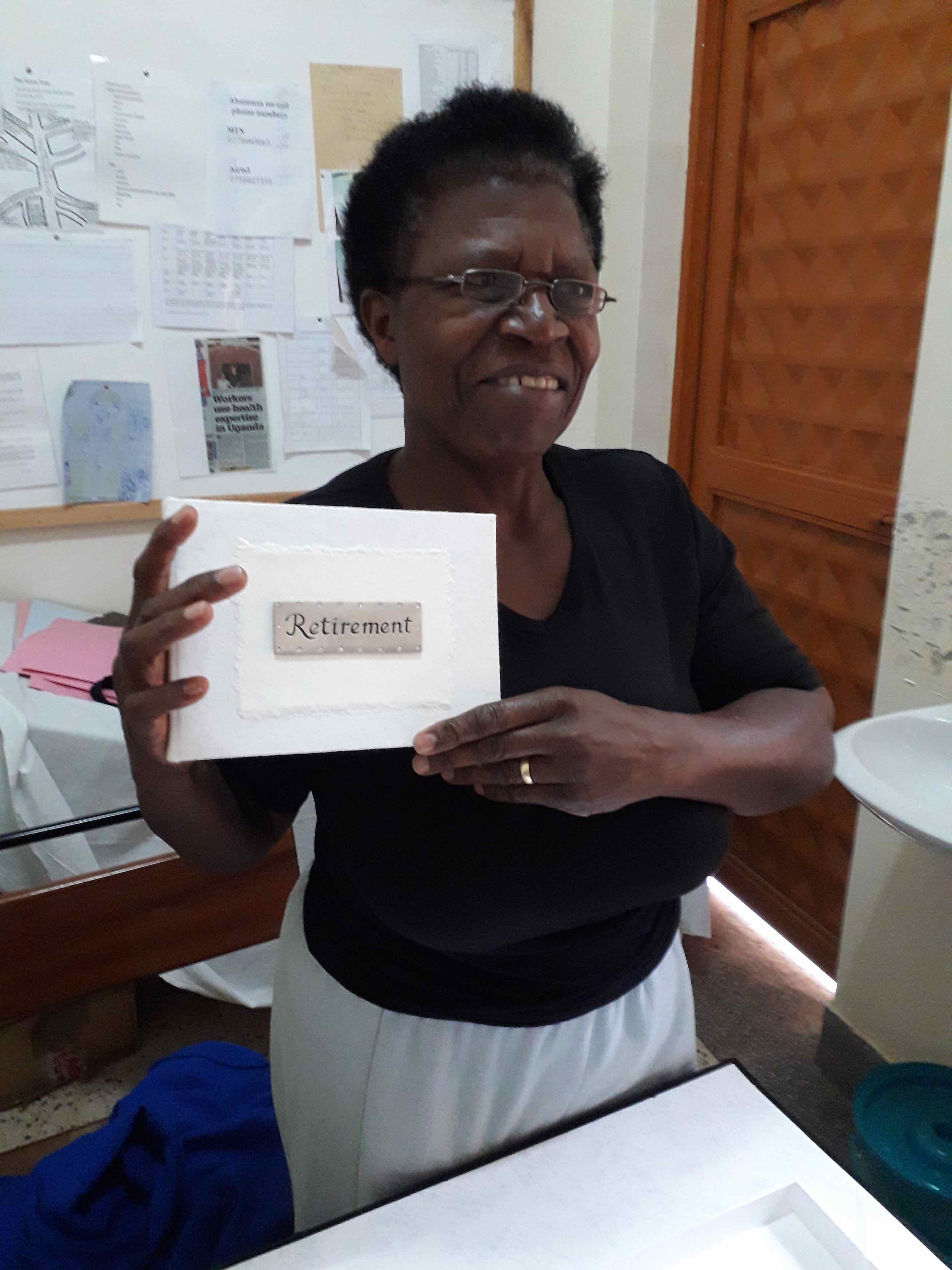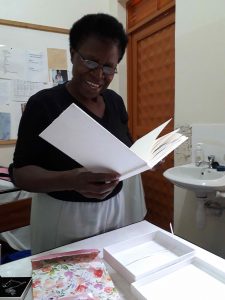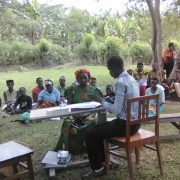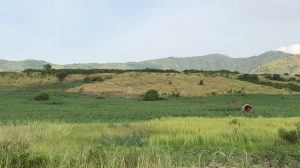Jamie’s Fund Supports New Service at Bwindi Hospital for People with Depression
Kuule Yusuf, PCO, is the mental health lead at Bwindi Community Hospital. Dr Holly Tyson is a UK GP with an interest in mental health, who is working there for 12 months. Together they began to look for an effective and sustainable psychological treatment for the many people presenting there with depression. They found that Group Interpersonal Therapy (IPT-G) had been successfully rolled out elsewhere in Uganda and that the trainers were still active locally.
They devised and costed a Group IPT pilot scheme of initial training of local staff, to be followed by roll out of three 8 week IPT groups over the coming six months. If found to be successful, Bwindi Hospital Management committed to making it part of the hospital’s ongoing mental health workplan.
Jamie’s Fund has been supporting the mental health team at Bwindi for some years as they work to deliver mental healthcare across their remote community. So Kuule and Holly asked if Jamie’s Fund would support the training. We were pleased to be able to help with sponsoring the training.
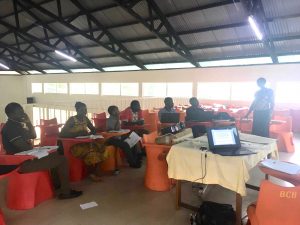
Group IPT training sessions
Moderate to severe depression is said by the World Health Organisation to be responsible for a very significant personal, economic and social burden globally. Antidepressant medication can be effective, but for many people, the underlying causes also need to be recognised and addressed. Across the world, these are often to do with relationships and loss. Additionally, in low income countries, reliable and affordable supplies of medication may be limited.
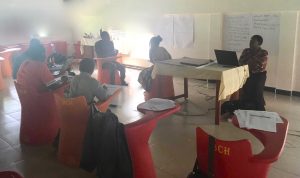
Role-play in action during training session
This is why the WHO mental health training for non-specialist staff, mhGAP, includes Group Interpersonal Therapy as a front line treatment for depression. In a collective social culture like Uganda, group interventions can be particularly acceptable and powerful. IPT focuses on understanding the links between the person’s mood and their interpersonal difficulties, and on finding new ways to deal with these difficulties.
Having brought the IPT trainers over to Bwindi in late February, the first steps towards a new service have already been taken. We will post updates as we get them.
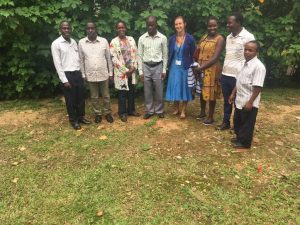
The mental health team after training
Linda Shuttleworth, March 2020.

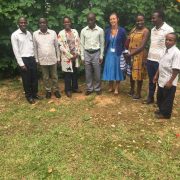
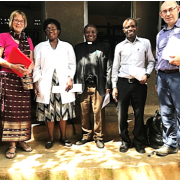
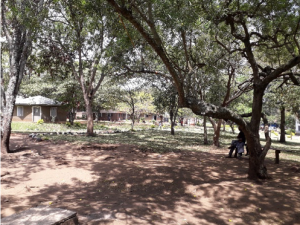 We first visited St Paul’s in Kasese in November 2018. St Paul’s is a Health Centre IV, essentially a small hospital, on the edge of town.
We first visited St Paul’s in Kasese in November 2018. St Paul’s is a Health Centre IV, essentially a small hospital, on the edge of town.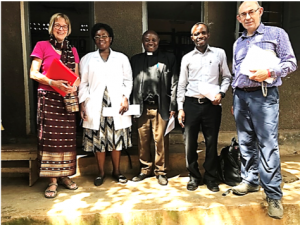 Apart from a psychologist colleague in the HIV/AIDs service, at that stage Sudaat was a little isolated professionally, and perhaps needed support to gainmore confidence in her role.
Apart from a psychologist colleague in the HIV/AIDs service, at that stage Sudaat was a little isolated professionally, and perhaps needed support to gainmore confidence in her role.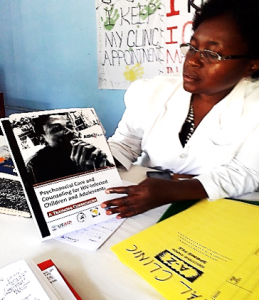 On our visit in September 2019 we found a newly trained and highly enthusiastic team eager to report on their progress and offer ideas for future developments.
On our visit in September 2019 we found a newly trained and highly enthusiastic team eager to report on their progress and offer ideas for future developments.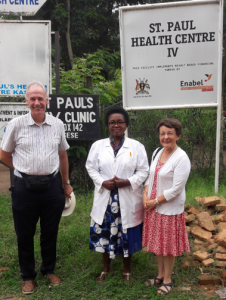
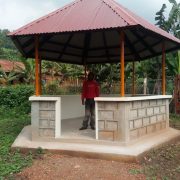
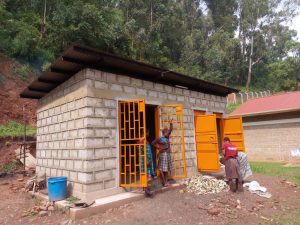
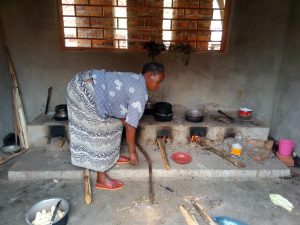
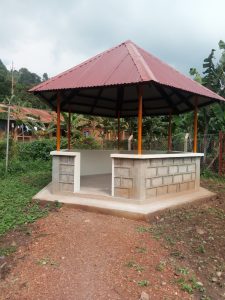

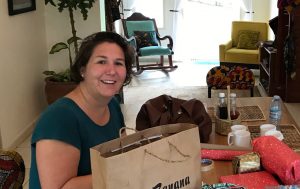 A bit bleary-eyed over breakfast in the guest house on our first morning in Uganda, a fellow guest, Fiona Beckerlegge, talked about how she had started a small child development centre, Kayaninga, in Fort Portal, to support parents and others meet the needs of their disabled children. She was a physiotherapist, who had initially come to Uganda to work for one family with a disabled child, and saw the lack of any help for the many children with physical and learning disabilities.
A bit bleary-eyed over breakfast in the guest house on our first morning in Uganda, a fellow guest, Fiona Beckerlegge, talked about how she had started a small child development centre, Kayaninga, in Fort Portal, to support parents and others meet the needs of their disabled children. She was a physiotherapist, who had initially come to Uganda to work for one family with a disabled child, and saw the lack of any help for the many children with physical and learning disabilities.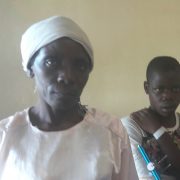
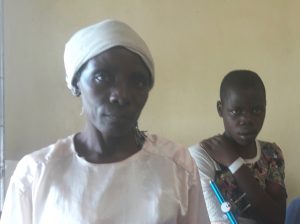 s worked really hard at telling people about modern treatment for both epilepsy and mental illness. Of the hundreds of people who heard this message, almost no-one knew there was such a treatment. However, if people could be encouraged to come for modern medicines and treatment, there might be much more hope for Enock and people like him.
s worked really hard at telling people about modern treatment for both epilepsy and mental illness. Of the hundreds of people who heard this message, almost no-one knew there was such a treatment. However, if people could be encouraged to come for modern medicines and treatment, there might be much more hope for Enock and people like him.